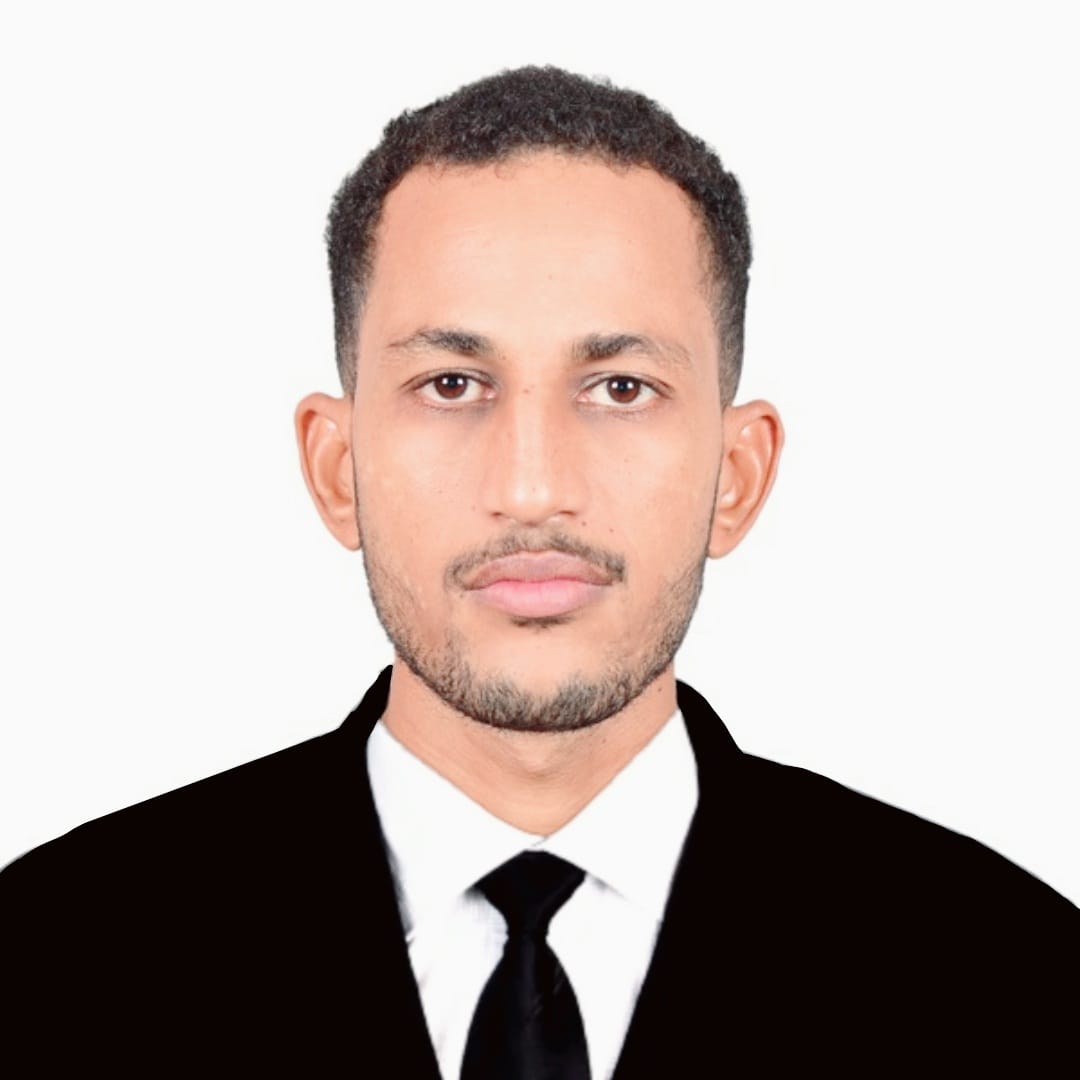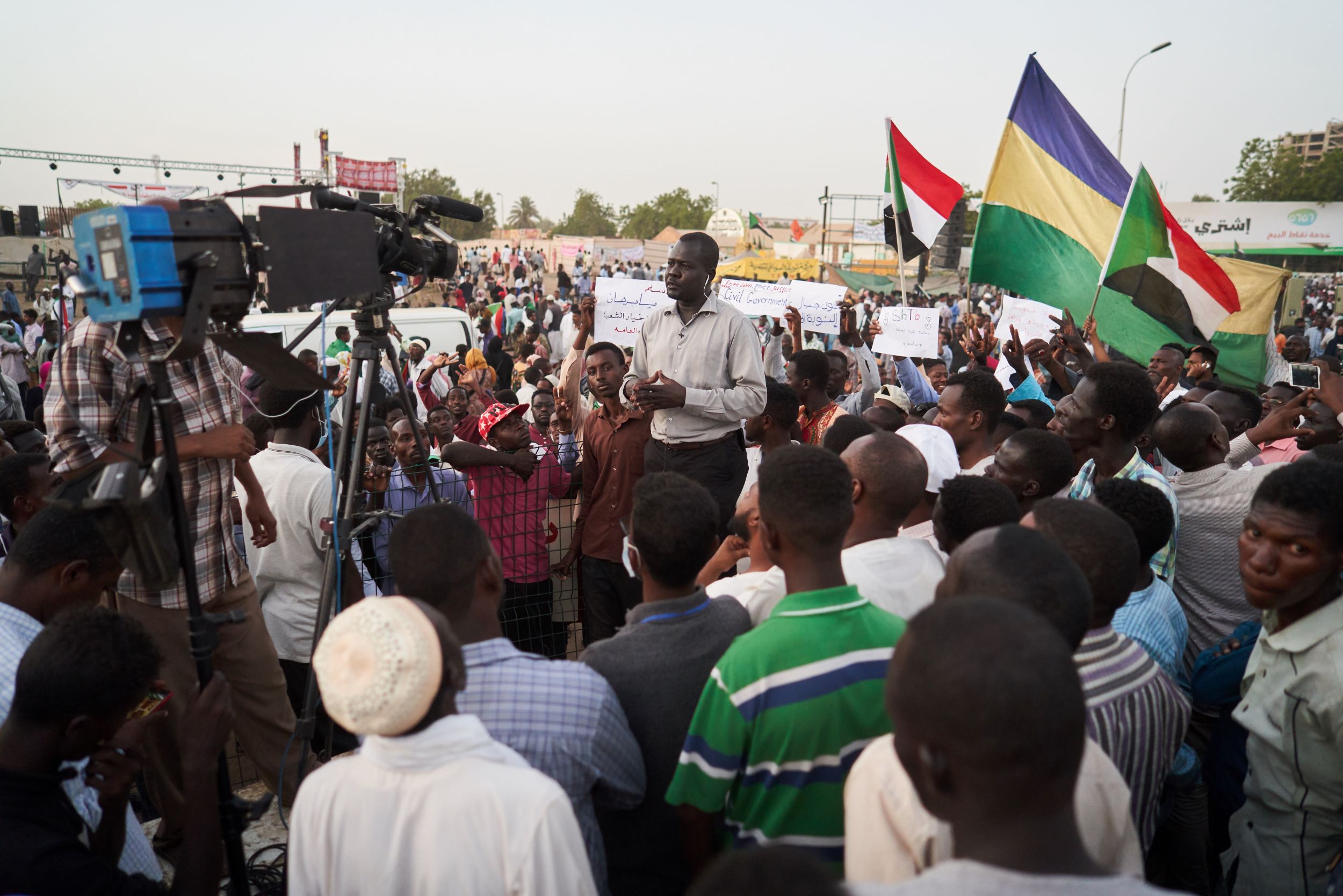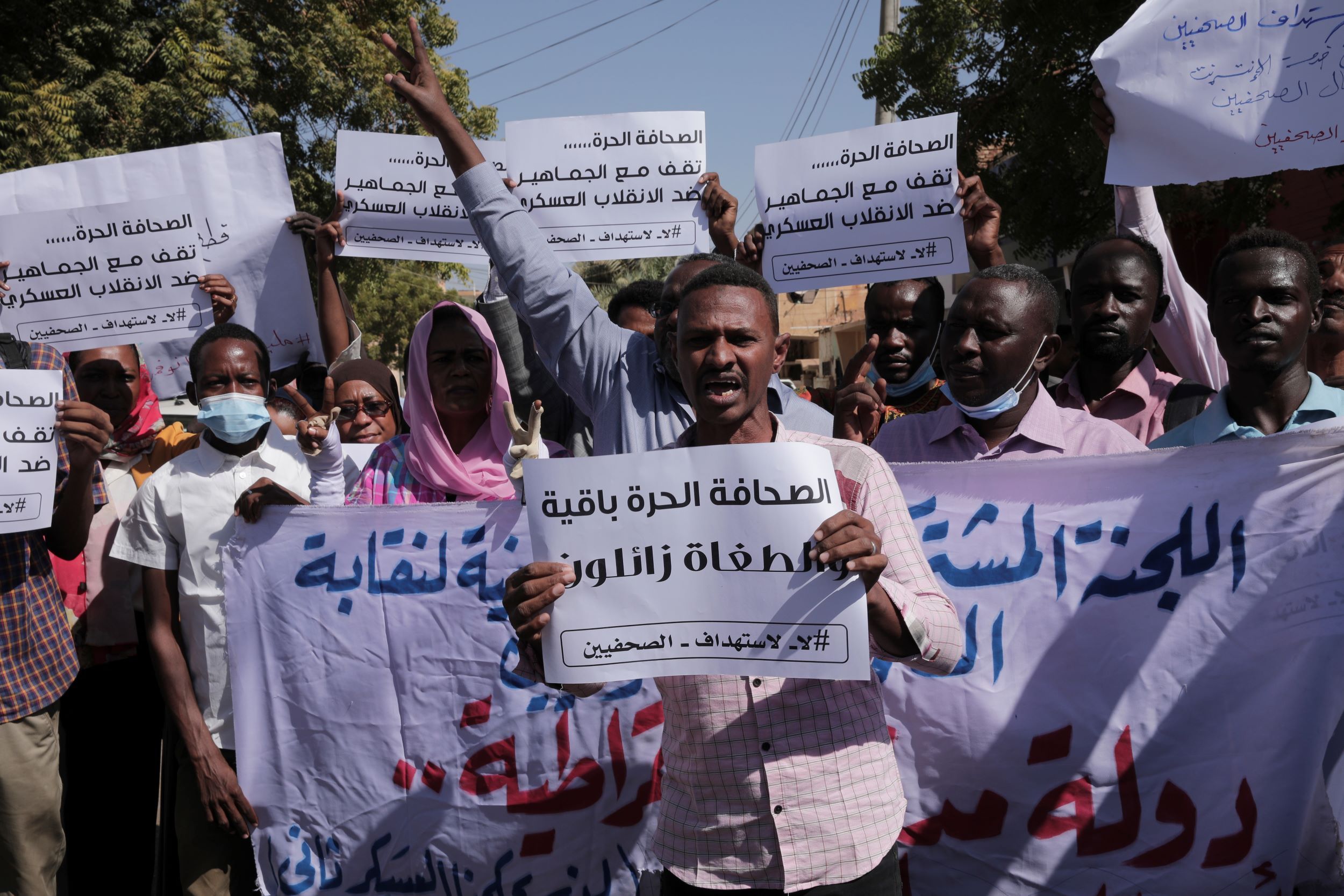This article was originally written in Arabic and has been translated into English with the assistance of AI tools and edited to ensure clarity and accuracy
How did the war in Sudan push dozens of journalists to change their professions in search of a decent life? In this article, colleague Muhammad Shaarawi recounts the journey of journalists who were forced by war conditions to work in agriculture, selling vegetables, and other professions.
Sudanese journalists are living in highly complex and tragic conditions after losing their jobs and sources of income due to the war that has been raging since April of last year. The war has forced the Sudanese to leave their country as refugees and displaced persons. The war left no way for the news anchor on Sudan TV, Mohamed Osman Al-Imam, to turn to agriculture after the TV station closed due to the war.
Mohamed El-Imam told Al Jazeera Journalism Review: ‘’Leaving the small world that I lived in for years was not easy, and it was even more difficult, after all these years, to find myself without a job. Working in this profession for years, I never imagined I would be the story of a journalist. The
Mohamed El-Imam was only one of hundreds of Sudanese journalists who were stranded, either displaced from one state to another within the country or refugees in neighbouring countries. All of them had their work stopped due to the closure of local newspapers and radio and television stations. Independent journalists who work for international media outlets faced widespread restrictions from both sides of the war in Sudan.
More than 600 journalists have lost their jobs and become unemployed, and those who work for international agencies and regional channels do not exceed 5 per cent of the total number.
According to the Social Secretary of the Sudanese Journalists Syndicate, Walid Al-Nour, journalists today live in highly complex conditions brought on by losing their jobs and being exposed to the worst types of violations and harassment.
In a statement to Al Jazeera Journalism Review, Walid said that more than 600 journalists have lost their jobs and become unemployed. Those who work for an international agency and regional channels do not exceed 5 percent of the total number. He added: "In Khartoum State alone, there are still 50 journalists who have not left the city, either due to family circumstances or because they cannot leave for other reasons." Most Sudanese newspapers, channels, and radio stations have stopped working. According to sources for Al Jazeera Journalism Review, about 25 print newspapers, more than seven television stations, and 12 radio stations operating on the FM broadcasting range have stopped.
Umniya Al-Hajj, a Radio Belady 96.6 FM journalist, believes that the reality of journalism and journalists has become more complex and dangerous, even in safe areas such as Port Sudan in the Red Sea State. “Journalists feel the serious effects of the war; being away from direct conflict areas may provide some physical safety, but journalism still faces major challenges. There is a severe lack of accurate information and difficulty in accessing reliable sources, in addition to the psychological pressure that journalists are exposed to while covering the human suffering caused by the war,” Umniya documents her experience. This new situation has displaced some journalists and forced others to look for new job opportunities in safer areas, such as Port Sudan, or to resort to digital media and freelance work.
In light of the economic recession that Sudan is experiencing due to the ongoing war, some journalists have resorted to taking on marginal jobs. In contrast, others have preferred to wait in shelters or with relatives in safe areas, hoping that life will return to how it was before. Their numbers are estimated in the hundreds, including journalist Anwar Badawi, who worked as a news director at the ‘’Blue Nile’’ Channel before the war, then found himself forced to leave Khartoum after the escalation of clashes until he ended up in Al Qadarif State after a displacement journey that extended from Khartoum to Al Jazirah and Sennar States.
Anwar Badawi told Al Jazeera Journalism Review: "The war forced me to leave Khartoum State, and I lost my job that I had been working in for years. It was very difficult as I tried to get out of the city until I reached Wad Madani, the capital of Al Jazirah State, and then I was forced to leave it as well after the Rapid Support Forces entered it in December of last year. It was a harsh journey until I reached the city of Al Qadarif in eastern Sudan, but it does not compare to the harshness of becoming unemployed overnight."
Badawi continues his story: “I have been editing news for years, writing with my hand the suffering of people in all the different states of Sudan. I believe that the main challenge of the journalism profession is to be closer to people. Today, I am living the experience of a human journalist who needs journalism to convey his suffering.”
I have been editing news for years, writing with my hand the suffering of people in all the different states of Sudan, believing that the main challenge of the journalism profession is to be closer to people. Today, I am living the experience of a human journalist who needs journalism to convey his suffering.
Violations against journalists and their direct targeting are two essential features of this war, as described by the journalist “Y." M."—who preferred to withhold his name for fear of his life. Y.M. works as a vegetable seller in one of the cities controlled by the Rapid Support Forces (RSF); after losing his main job at a Sudanese newspaper, he says, "I was subjected to violations, insults, and abuse by these forces. Sometimes, they even throw all my goods on the ground under the pretext that I belong to the army's military intelligence. Not only that, but they describe me as the worst kind of animal and sometimes ask me for money as a work tax, and other times they beat me under the pretext that I belong to the army. I live a harsh life. I, who was once a journalist who conveyed people's suffering, have become the story."
The producer of programs and news bulletins at Khartoum State Television, Munther Al-Ubaid, believes that journalism and journalists have been suffering since before the war, as stated in a statement to the Al Jazeera Journalism Review: "And these raging fires are nothing but a mercy bullet in the body of this profession."
He added, "It is true that journalism was the only hope, but it was not the only source of income. I used to do other work to cover my needs. The channel's salary alone is not enough to last until the end of the month and will not cover all my expenses. I was forced to leave Sudan, and I find it difficult to look for work abroad."
From his perspective, the editor-in-chief of the Sudanese newspaper Al-Tayyar, Osman Mirghani, said in a statement to the Al Jazeera Journalism Review that "journalists are now living in the worst conditions; from a professional standpoint, they have lost the media institutions they used to work for, and from a humanitarian standpoint, the conditions left by the war on a personal level for all journalists—especially those still inside Sudan—have made them suffer extremely badly, in light of their inability to work and earn money to spend on their families and personal needs."
I have been subjected to violations, insults, and abuse by these forces. Sometimes, they throw all my goods on the ground under the pretext that I belong to the military intelligence of the army, and not only that, but they describe me as the ugliest type of animal and sometimes ask me for money as a work tax, and at other times they beat me under the pretext that I work for the army. I live a harsh life. Once a journalist who conveyed people's suffering, I have become the story.
Are These Circumstances Pushing Journalists to Surrender?
According to Mirghani, resistance is the last resort for journalists: “Our role as journalists is to restore these institutions as much as possible, and I think that is what we did after the war; we tried to preserve some journalists and provided possible financial assistance, considering that this is the least that can be provided in such circumstances, and we also succeeded in providing some training courses for them so that they can benefit from the period of cessation.”









































